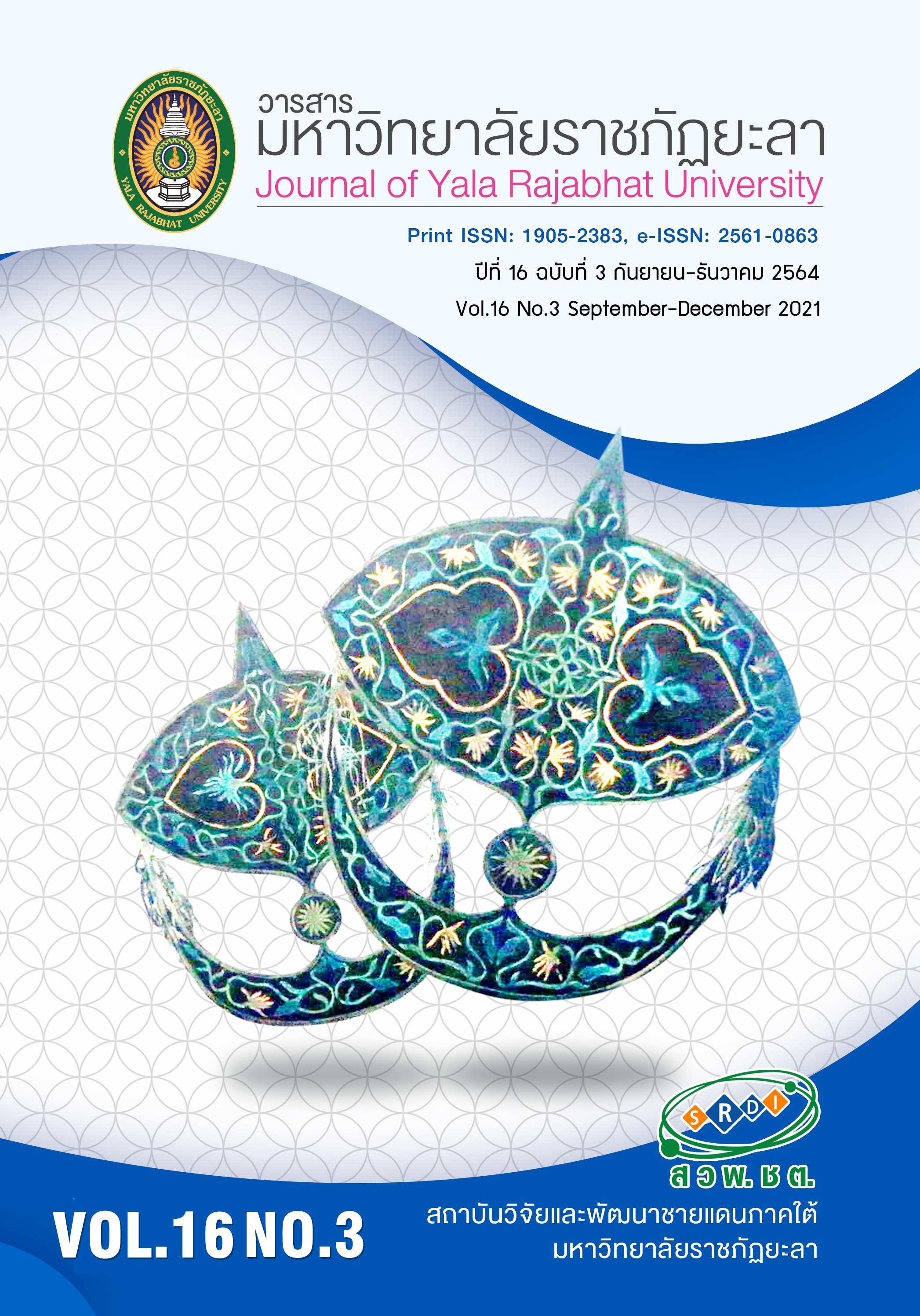The Relationship of Career Anchors on Job Satisfaction Mediated by Work - Family Enrichment in Convention and Exhibition Industry in Thailand
Main Article Content
บทคัดย่อ
The research aimed (1) to explore the relationship of career anchors on job satisfaction, (2) to investigate the mediating effect of work – family enrichment on the relationship between career anchor and job satisfaction in convention and exhibition industry in Thailand. The key literature relating to career anchors, work - family enrichment and job satisfaction is reviewed which is followed by a discussion of the findings based on a survey of 519 convention and exhibition professionals in Thailand. This study employed a quantitative correlational design using a path model via multiple regression. Findings indicated that work to family enrichment and family to work enrichment significantly mediated the relationship of need based anchor, value-based anchor to job satisfaction. However, the effect of work to family enrichment and family to work enrichment did not mediated the relationship of talents based anchor on job satisfaction. The results highlights the role of individual differences in values and job outcome which would help the organizations to determine the non-monetary factor which affect work and job satisfaction, and career anchors provide a way of understanding these motivators of career decision.
Article Details
บทความ ข้อมูล เนื้อหา รูปภาพ ฯลฯ ที่ได้รับการเผยแพร่ในวารสารมหาวิทยาลัยราชภัฏยะลานี้ ถือเป็นลิขสิทธิ์ของวารสารมหาวิทยาลัยราชภัฏยะลา หากบุคคลหรือหน่วยงานใดต้องการนำทั้งหมดหรือส่วนหนึ่งส่วนใดไปเผยแพร่ต่อหรือกระทำการใดๆ จะต้องได้รับอนุญาตเป็นลายลักษณ์อักษรจากวารสารมหาวิทยาลัยราชภัฏยะลาก่อนเท่านั้น
เอกสารอ้างอิง
Baral, R. & Bhargava, S. (2011). Examining the moderating influence of gender on the relationships between work-family antecedents and work-family enrichment. Gender in Management: An International Journal, 26 (2), 122-147.
Baron, R. & Kenny, D. (1986). The moderator-mediator variables distinction in social psychological research: conceptual, strategic and statistical consideration. Journal of Personality and Social, 51, 1173-1182
Carlson, D. S., Ferguson, M., Kacmar, K., Grzywacz, J. G. & Whitten, D. (2011). Pay it forward: The positive crossover effects of supervisor work–family enrichment. Journal of Management, 37, 770–789.
Danziger, N., Rachman-Moore, D. & Valency, R. (2008). The construct validity of Schen’s career anchors orientation inventory. Career Development International, 13 (1), 7-19.
DeLong, D. J. (1982). The career orientation of MBA alumni: a multidimensional model, in Katz, R(ed) 1982. Career issues in career orientations, Prentice-Hall, New York, 50-64.
Feldman, D. C. & Bolino, M. C. (1996). Career within career: reconceptualising the nature of career anchors and their consequences. Human Resource Management Review, 6 (2), 89-112.
Greenhaus, J. H. & Powell, G. N. (2006). When work and family are allies: A theory of work-family enrichment. Academy of Management Review, 31 (1), 72-92.
Hackman, J.R. & Oldham, G.R. (1976). Motivation through the design of work: Test of a theory. Organizational Behaviour and Human Performance, 16, 250-279.
Igbaria, M. & Baroudi, J. J. (1993). A short- form measure of career orientations: a psychometric evaluation. Journal of Management Information System, 10 (2), 131-154.
Locke, E.A. (1976). The natureand consequences of job satisfaction, in Dunnetter, MD (ed), Handbook of industrial and organizational psychology. Rand-McNally, Chicago, 1297-1349.
Meiliani, M. (2014). Career anchors and job satisfaction: the role of psychological empowerment in the Indonesian public university context. unpublished Ph.D. Thesis, University of Wollongong.
Oraphin, C. & Sunee. H. (2018). Development of Work – Family Interface Inventory. Warasan Phuettikammasat, 25 (1), 42 -59
Salehi, P., Mohd Radi, R. & Ahmad, A. (2015). Personal and environmental predictors of academics’ work -to-family enrichment at research university. Asia-Pacific Edu Res, 24 (2), 379-388.
Schein, E. H. (2006). Career anchors: participant workbook, Pfeiffer,California
Tang, S., Siu, O. L. & Cheung, F. (2014). A study of work–family enrichment among Chinese employees: The mediating role between work support and job satisfaction. Applied Psychology: An International Review, 63 (1), 130–150.
Thailand Convention and Exhibition Bureau (TCEB) (2019). Thailand competitiveness report 2019 [online], Retrieved November 14, 2019, from http://www.tceb.or.th/


